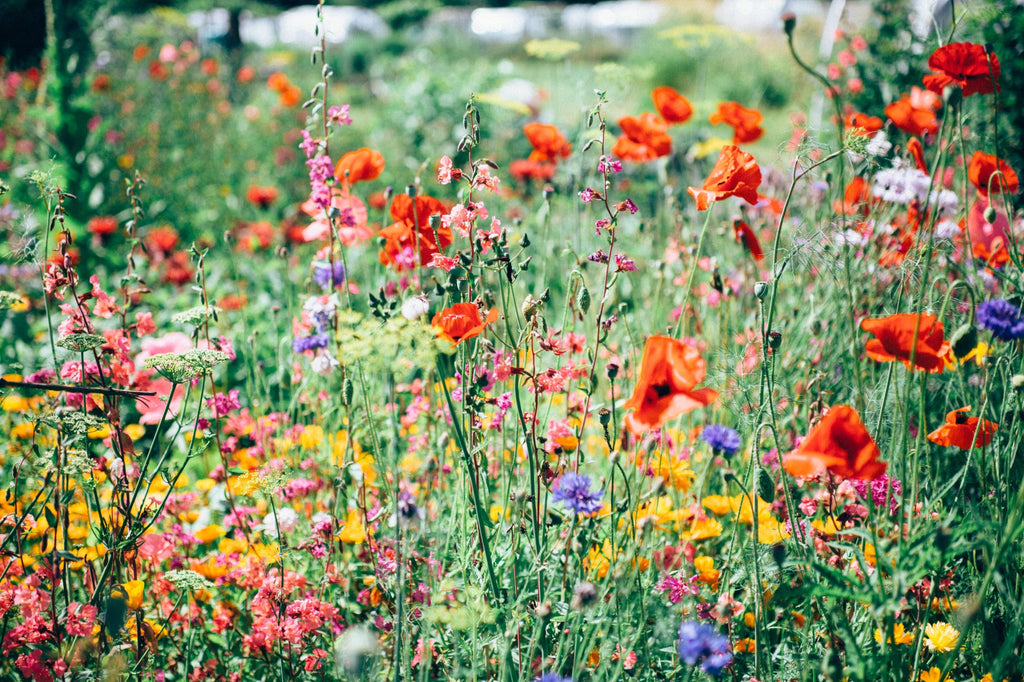A vase of freshly picked roses more than compensates for any extra effort required in growing them.
Rose planting is traditionally done in winter, but container grown plants for spring planting are an increasing trend. Garden centres stock a limited selection of the most popular varieties. A more extensive range of varieties is available by mail order and online. However, it is important to remember that the strongest growing plant doesn't always lie behind the prettiest photograph. Take the time to check vigour and disease resistance.
Roses grow best in full sun. They thrive in any soil that supplies plenty of moisture without becoming water logged. Try not to plant new roses in soil previously inhabited by roses. Soil organisms, unfriendly to roses, buildup causing a condition known as 'rose sickness'. If you wish to plant again in the same position, replace it with soil from another part of the garden. Roses will also struggle if planted too close to trees which will rob them of light, moisture and nutrients. Finish off after planting with a generous layer of organic mulch to keep water in and weeds out.
Suggested products: Screened Topsoil, Nutrasoil, Living Earth Mulch, Bark Mulch, Reharvest Coloured Mulch - available at Central Landscape Supplies in bags and bulk, pickup or delivery.
Take the time to water roses as deeply as possible to encourage deep root growth. A light wetting of the soil surface will do more harm than good. Avoid sprinklers which increase the risk of disease. Fertiliser is best applied in spring, and again in late summer. Roses respond well to organic manures such as sheep pellets. Fresh animal manure must be composted before use.
Old fashioned roses which bloom in one great spring flush are pruned immediately after flowering. The main pruning time for repeat flowering modern roses is winter, but regular dead-heading throughout summer keeps flowers coming for longer.
Bugs start causing trouble in early summer. The more humid your climate the more likely you will need to spray. Systemic insecticides, such as Yates Confidor, are absorbed by the plant, thereby killing only the insects that are feeding on your roses. The number of times you need to spray is significantly less than with older style contact sprays.
Disease problems are significantly reduced by planting disease resistant varieties and focusing on healthy, well grown roses. Avoid overcrowding and excessive weed growth, and keep the ground clear of diseased leaves.
Rose planting is traditionally done in winter, but container grown plants for spring planting are an increasing trend. Garden centres stock a limited selection of the most popular varieties. A more extensive range of varieties is available by mail order and online. However, it is important to remember that the strongest growing plant doesn't always lie behind the prettiest photograph. Take the time to check vigour and disease resistance.
Roses grow best in full sun. They thrive in any soil that supplies plenty of moisture without becoming water logged. Try not to plant new roses in soil previously inhabited by roses. Soil organisms, unfriendly to roses, buildup causing a condition known as 'rose sickness'. If you wish to plant again in the same position, replace it with soil from another part of the garden. Roses will also struggle if planted too close to trees which will rob them of light, moisture and nutrients. Finish off after planting with a generous layer of organic mulch to keep water in and weeds out.
Suggested products: Screened Topsoil, Nutrasoil, Living Earth Mulch, Bark Mulch, Reharvest Coloured Mulch - available at Central Landscape Supplies in bags and bulk, pickup or delivery.
Take the time to water roses as deeply as possible to encourage deep root growth. A light wetting of the soil surface will do more harm than good. Avoid sprinklers which increase the risk of disease. Fertiliser is best applied in spring, and again in late summer. Roses respond well to organic manures such as sheep pellets. Fresh animal manure must be composted before use.
Old fashioned roses which bloom in one great spring flush are pruned immediately after flowering. The main pruning time for repeat flowering modern roses is winter, but regular dead-heading throughout summer keeps flowers coming for longer.
Bugs start causing trouble in early summer. The more humid your climate the more likely you will need to spray. Systemic insecticides, such as Yates Confidor, are absorbed by the plant, thereby killing only the insects that are feeding on your roses. The number of times you need to spray is significantly less than with older style contact sprays.
Disease problems are significantly reduced by planting disease resistant varieties and focusing on healthy, well grown roses. Avoid overcrowding and excessive weed growth, and keep the ground clear of diseased leaves.
